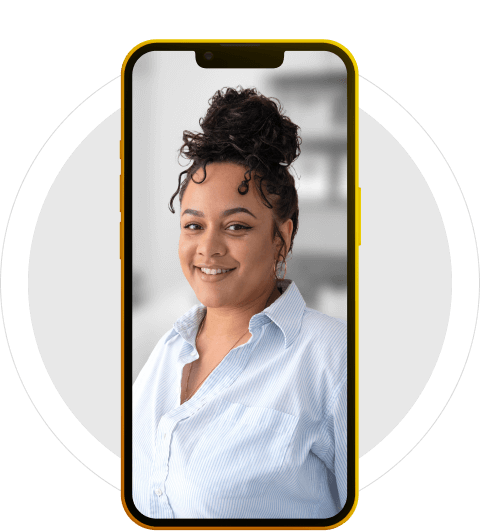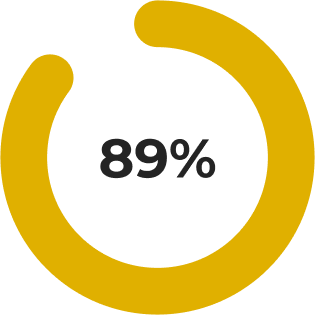Take a Mental Health Assessment Online for Free
Not knowing about your mental health can be worrying and tiring.

What Is a SmartCare Mental Health Test?
The SmartCare tool contains a brief mental health quiz. It can help you evaluate disturbing symptoms of various mental health conditions, including the following:
Depression
Continued sadness, lack of interest in usual activities, and sleep disturbances are just a few symptoms. The assessment is based on the DSM depression scale to provide valid results.
ADHD
Our online ADHD assessment helps to determine whether your symptoms relate to ADHD. It also shows the probability of having this condition and its severity.
Anxiety
Take an online anxiety assessment if you experience prolonged worrying, panic attacks, fatigue, restlessness, difficulty concentrating, or specific phobias.
Insomnia
The online SmartCare mental health test will help you know if your sleep problems indicate insomnia and require specific treatment.
OCD
Are you preoccupied with compulsive thoughts and obsessive behaviors that signify obsessive-compulsive disorder? Take an online assessment to know!
The SmartCare tool contains a brief mental health quiz. It can help you evaluate disturbing symptoms of various mental health conditions, including the following:
- A free and accurate DSM-5 assessment
- Only 5 minutes to complete
- Science-backed evidence-based questions
- A variety of conditions to be tested on
- The results are provided immediately after the completion

How Do I Know I Need to Take a Mental Illness Test?
Use online mental health screenings if you have noticed changes in your emotions or behavior in the last few weeks.
These are some symptoms you have to pay attention to:
- Continued worrying and anxiety
- Difficulty concentrating
- Fear of social interactions
- Irritability
- Loss of joy from favorite activities
- Sleep problems
- Intrusive thoughts
- Phobias
- Fatigue and hopelessness
- Panic attacks
- Inability to cope with stress
- Frequent mood swings
Just like physical illnesses, mental conditions can interfere with day-to-day life and decrease its quality.
But we are here to help! At MEDvidi, you will receive a personalized treatment plan and support from certified doctors.
Take the Next Step
Our online mental health assessment was developed based on the DSM-5 guidelines. Still, it is an informational tool, and only a qualified doctor can make a diagnosis.
If the SmartCare Checker indicates the need to see a mental health expert, book an appointment and get personalized care at MEDvidi.
During the initial appointment, your doctor will:
- Review your symptoms and health history
- Rule out other disorders and make a diagnosis
- Help determine the treatment goals
- Develop a treatment plan and prescribe medications if needed
- Use the SmartCare results as the starting point for progress monitoring
It all starts with the right evaluation of symptoms and getting a diagnosis.
The earlier you start treatment, the sooner you feel better.


89% of our clients achieve clinically significant results in 8 to 12 weeks. Start with a DSM-5 online test via SmartCare to get personalized treatment and feel better too.
If you are struggling to determine the category of the mental disorder test in SmartCare, pick the one you find more suitable. You can also contact us to book a direct appointment with a doctor. A mental health expert will conduct a detailed evaluation of your symptoms online and make a diagnosis. Note that an online visit is required to get a diagnosis since the SmartCare mental health test only serves for informational purposes.
Yes, you can. First, you can get a review of your symptoms via SmartCare using an in-built ADHD test for adults, online depression assessment, and other questionnaires. Based on your answers, the tool will show the probability of having any mental health condition. Second, you can see a mental health professional online at MEDvidi. Our doctors are certified to diagnose mental illnesses online and provide treatment plans and prescription medications.
At MEDvidi, you can only get a mental health diagnosis after a one-on-one consultation with a doctor (if the specialist determines you have any mental condition). The results you get from our mental health evaluation via SmartCare can only serve for informational purposes. They help better understand your state and indicate whether you need to see a professional.
Know More About Mental Health Here
Learning more about mental health will help you notice any disturbing symptoms faster.
Explore medically approved articles about depression, anxiety, ADHD, chronic fatigue syndrome, stress, insomnia, and other mental health issues.
The Path to Mental Wellness Starts with Getting the Right Diagnosis
Take an online mental health test now to know if you need professional help